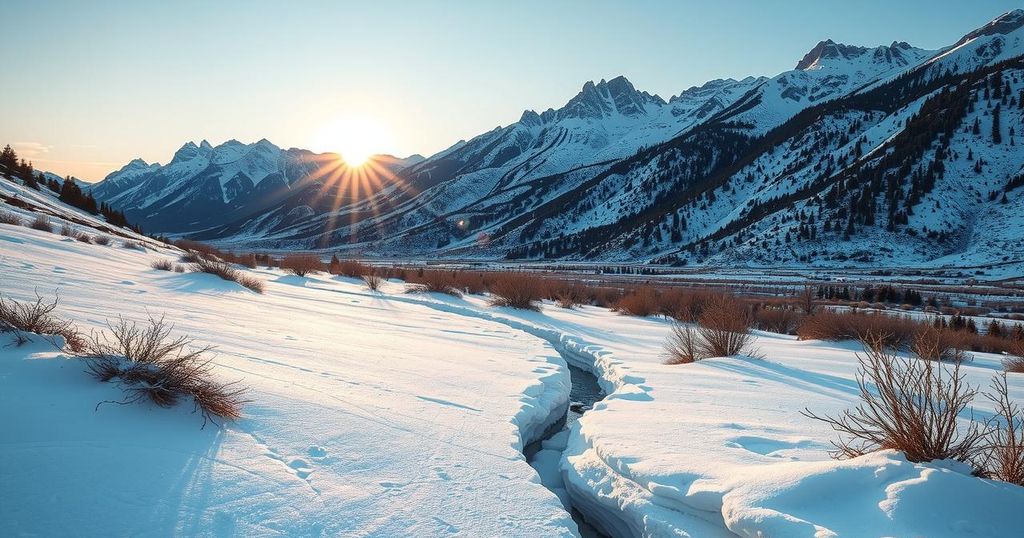The Mountain West is anticipated to lose two to ten winter days this year due to climate change, as detailed in a Climate Central report. While states like Arizona and Nevada are most affected, areas such as Wyoming are experiencing less impact. This reduction poses threats to ski resorts, pollination, and water supplies, necessitating urgent attention to the implications of warming winters.
A recent report from Climate Central indicates that winter in the Mountain West is expected to shorten by two to ten days this year due to the effects of climate change. Notably, states like Arizona, New Mexico, and Nevada have experienced a significant decline, averaging a loss of ten below-freezing days annually. Kristina Dahl, the vice president of science at Climate Central, emphasized the broader implications of this warming trend, noting that higher temperatures can influence whether precipitation occurs as rain or snow.
Although states such as Wyoming, Idaho, and Colorado have experienced fewer losses—averaging a reduction of two to four winter days—this trend still poses serious threats to local ski resorts and ecosystems. Dahl highlighted that warmer winters could result in flowers blooming too early, leading to a mismatch with pollinator activity essential for crop sustainability. Moreover, diminished snowfall jeopardizes regional water supplies, underscoring the critical nature of these environmental changes for the Mountain West.
The Mountain West region is facing a notable decrease in winter days, attributed largely to climate change. This trend is not uniform across the region, with certain states experiencing more significant temperature increases. The reported changes have far-reaching consequences for both recreational industries, such as ski resorts, and natural ecosystems. Understanding the regional variation in temperature and precipitation patterns is crucial in addressing the emerging challenges posed by climate change.
In summary, the Mountain West region is experiencing a concerning reduction in winter days, with varying degrees of impact across different states. The implications extend beyond mere recreational concerns, affecting agricultural practices and water resources in the region. With climate change continuing to accelerate, it is essential to pay attention to these trends and their potentially profound impacts on both the economy and the environment.
Original Source: www.kanw.com






